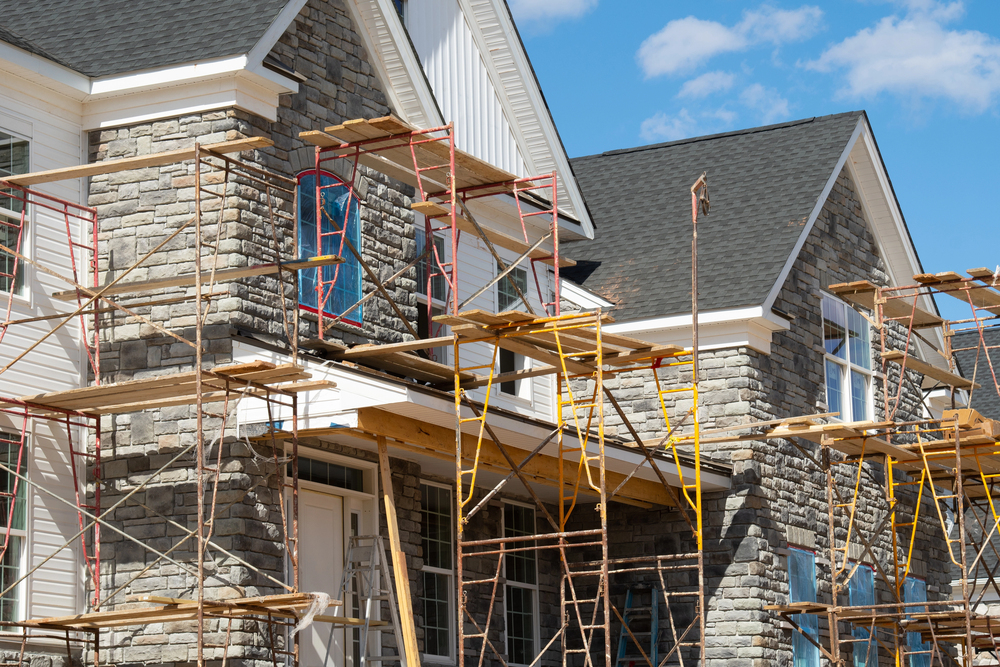Builders Risk vs. Homeowners Endorsements for Luxury Home Renovation

A client is remodeling their house with a planned $400,000 renovation. The remodeling will include an addition, several room remodels, and a new deck. The agent is receiving pushback from the carrier’s underwriters on a $1.5 million Coverage A limit with the renovation.
Q: Would a commercial builders risk policy be the best option to cover the renovation, or are there specific ISO homeowners endorsements that can be added?
Response 1: The more important question might be: What is best for your client? There are many considerations. Here are a few:
- Is it beneficial to rely on the HO3 with an underwriter who has “pushed back” on a $400,000 renovation on a $1.5 million dwelling? The nature of the work is material to underwriting appetite and proper coverage.
- Insurers with proprietary forms often include provisions about construction that impose sublimits, higher deductibles, coverage limitations and more, and require approval of underwriters for coverage to continue. Some include a threshold. For instance, if the cost of the work is more than a certain percentage of the Coverage A limit, then underwriter permission is required to continue the homeowners coverage without the additional limitations. While the HO3 does not include such provisions, the underwriter has raised concerns and might have underwriting restrictions and coverage limitations.
- Homeowners policies are typically intended for completed dwellings with modest renovation and maintenance projects. For instance, new floors or a new roof or new stucco are not major structural changes like a new addition would be. An often-recognized exception is work to restore the property following a covered loss.
- Is the home vacant during the construction project or is it still being used as a residence as defined in the policy? Also, is this a primary or secondary residence?
- Some insurers offer companion builders risk policies to supplement the homeowners policy during construction. Does the underwriter offer a companion builders risk policy that you have not offered to the client?
- Would a builders risk inland marine policy provide better coverage for the client?
- How would a builders risk policy sync with the homeowners coverage? Will two policies apply, one to existing structures and one to the course of construction, or will the whole property be insured under one builders risk policy? Some reduce coverage for the existing structure to actual cash value and named perils, while some offer broad perils with replacement cost coverage for existing and new course of construction.
- Will replacement cost continue to apply to the existing structures or does it change to ACV during construction?
- What is the scope and nature of the project—size, complexity and cost?
- What does the construction contract state? Does it require the owner to insure the contractors’ interests in the work? Most homeowners insurers will not do so. Also, does the owner assume liability via the construction contract that is beyond the scope of homeowners contractual liability insurance and personal umbrella policy coverage?
- Does the mortgage holder, if any, require builders risk coverage during construction?
- Does the owner have workers comp exposures for uninsured contractors?
- Did the owner pull the building permits in their name or did a general contractor or multiple subcontractors pull permits?
- If the owner pulled the permits, did the owner warrant to the city that they accepted certain liability and workers comp risks? If yes, are those risks insured under the homeowners and PUP policies?
When our clients plan to construct major renovations or additions, we check with the homeowners insurer and other markets. And, of course, we review the general contractors’ contract provisions that could influence decisions.
Typically, we find the homeowners insurer’s coverage is deficient and the underwriting requisites are unreasonable. Often, the builders risk underwriter and specialty markets offer more robust coverage with fewer restrictions. And most of the time they are willing to cover contractors’ interests in the work that might be required under the construction agreements.
Response 2: The big question is: Will the insured be residing there during the renovations? Is this a seasonal or secondary dwelling? If they are residing there during the renovations, there should not be the need to add any special endorsement.
Find out what the experts think
Response 3: First, you need to confirm that the insurer is comfortable with homes in this price range. Some underwriters are unfamiliar with the issues involving higher-valued homes, and if that’s the case, you would be better off switching to a carrier that knows how to handle affluent homes.
Second, you need to fully understand what will happen during the project. If the owner is staying in the home, that’s one thing—but if they’ll be moving out, there could be issues involving coverage for their furniture while it’s being stored elsewhere.
It’s essential to make sure the underwriter knows exactly what’s happening with this client. Failing to disclose all the details could result in an uninsured loss for the client and an errors & omissions lawsuit for you.
Response 4: First, make sure your values are adequate. If I was in your shoes, I would strongly recommend a builders risk policy through the course of construction.
Also, is the named insured engaging a general contractor or simply subcontracting the work? If there is no evidence of workers comp from a general contractor, the homeowners client should buy a workers comp policy. I know a homeowner who used casual laborers for cleanup and one of them was permanently disabled. The homeowner was grateful to have purchased a workers comp policy.
This question was originally submitted by an agent through the Big “I” Virtual University’s (VU) Ask an Expert service, with responses curated from multiple VU faculty members. Answers to other coverage questions are available on the VU website. If you need help accessing the website, request login information.
This article is intended for general informational purposes only, and any opinions expressed are solely those of the author(s). The article is provided “as is” with no warranties or representations of any kind, and any liability is disclaimed that is in any way connected to reliance on or use of the information contained therein. The article is not intended to constitute and should not be considered legal or other professional advice, nor shall it serve as a substitute for obtaining such advice. If specific expert advice is required or desired, the services of an appropriate, competent professional, such as an attorney or accountant, should be sought.











